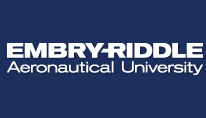T2-E: Systems Engineering Framework to Design a Laboratory Course: A Case Study
Location
Dolphin
Start Date
5-3-2018 1:45 PM
Description
This manuscript introduces a Systems Engineering (SE) framework to design a state-of-the-art engineering laboratory course. In order to illustrate the developed framework, results from an implemented undergraduate embedded systems laboratory course are being presented as a case study. The Concept of Operations was developed for the lab design to bridge the gap between skillset required by the industry and the learning objectives defined by the academic program. This was accomplished by preparing the students with a skillset that would facilitate their smooth transition from the academic program to the industry. Following the SE framework, industry ready skills were identified based on the survey carried out from the TRUE (Taking Responsibility to Understand Engineering) Partners of the Electrical Engineering (EE) Department at the University of South Florida (USF). The course design requirements were then identified based on the needs of the stakeholders: the industry; the students; and the EE department of USF. Further, the course was implemented through CANVAS, a learning management system, by incorporating innovative instructional interventions. The case study is being verified and validated by presenting the results of the course exit survey and metrics such as grade point averages, enrollment, retention and completion rates; the trends of the results show that the students were able to grasp the presented technical material with ease. In addition, the results also indicated that maximum learning experience was accomplished due to the incorporation of instructional interventions like spacing and interleaving, pair programming, online lectures, active and social learning, into the course design. Finally, it can be seen that a SE approach is very effective not only in maximizing the student learning experience but also in meeting the ever-changing skillset requirement of the industry.
T2-E: Systems Engineering Framework to Design a Laboratory Course: A Case Study
Dolphin
This manuscript introduces a Systems Engineering (SE) framework to design a state-of-the-art engineering laboratory course. In order to illustrate the developed framework, results from an implemented undergraduate embedded systems laboratory course are being presented as a case study. The Concept of Operations was developed for the lab design to bridge the gap between skillset required by the industry and the learning objectives defined by the academic program. This was accomplished by preparing the students with a skillset that would facilitate their smooth transition from the academic program to the industry. Following the SE framework, industry ready skills were identified based on the survey carried out from the TRUE (Taking Responsibility to Understand Engineering) Partners of the Electrical Engineering (EE) Department at the University of South Florida (USF). The course design requirements were then identified based on the needs of the stakeholders: the industry; the students; and the EE department of USF. Further, the course was implemented through CANVAS, a learning management system, by incorporating innovative instructional interventions. The case study is being verified and validated by presenting the results of the course exit survey and metrics such as grade point averages, enrollment, retention and completion rates; the trends of the results show that the students were able to grasp the presented technical material with ease. In addition, the results also indicated that maximum learning experience was accomplished due to the incorporation of instructional interventions like spacing and interleaving, pair programming, online lectures, active and social learning, into the course design. Finally, it can be seen that a SE approach is very effective not only in maximizing the student learning experience but also in meeting the ever-changing skillset requirement of the industry.


